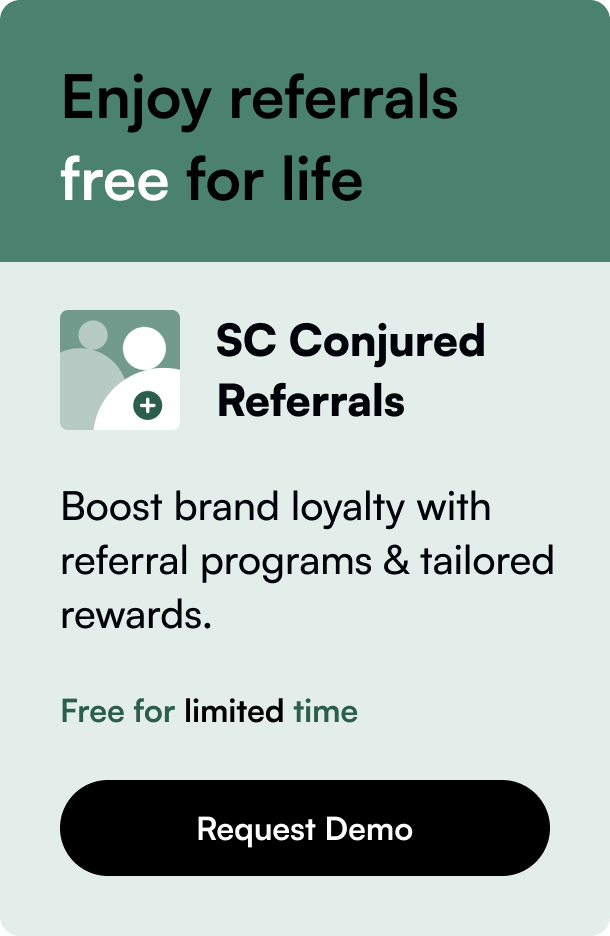Table of Contents
- Introduction
- Research and Evaluate Your Options
- Foster a Culture of Mutual Partnership
- Understand Pricing Structures and Agreements
- The Power of Success Stories
- Conclusion
- FAQ
In the ever-evolving world of eCommerce, establishing a symbiotic relationship with the right development partner is not just beneficial; it's imperative for sustained success. However, the journey to finding this match can often feel daunting. With an abundance of agencies vowing sky-high results, the decision-making process becomes even more arduous. The consequence? A partnership fraught with missed deadlines, unmet expectations, and projects that exceed budget constraints. But, fear not. With a meticulous approach to identifying your ideal eCommerce development agency, you can pivot from potential pitfalls to prosperous partnerships.
Introduction
Think about a time you embarked on an crucial project, loaded with anticipation, only to face hurdles that seemed insurmountable—miscommunication, delayed timelines, and a palpable disconnect in understanding objectives. This scenario is not uncommon in the realm of eCommerce collaborations. However, identifying the right development partner doesn't have to be a shot in the dark.
This blog post aims to demystify the process of finding a development partner that aligns with your business values and goals. We will delve into four critical steps that will not only enlighten you on how to vet potential agencies but will also equip you with the knowledge to foster a partnership characterized by mutual understanding, seamless communication, and, most importantly, tangible results. By the end of this read, you'll have a clear roadmap to navigate the complex landscape of eCommerce development partnerships.
Research and Evaluate Your Options
The foundation of any successful partnership is anchored in diligent research. It's common to be swayed by the allure of a well-designed website or persuasive sales pitches. However, the true worth of a development agency is often hidden beneath the surface, in the intricacies of their past projects, industry expertise, and technical proficiency.
Industry Experience and Technical Expertise
Begin by seeking agencies with a robust portfolio in your specific industry. Such agencies are more likely to understand the unique challenges and customer dynamics pertinent to your business. An agency's technical prowess on platforms such as Shopify, BigCommerce, or Magento—supported by certifications and successful project stories—should be non-negotiable. These success stories are not just testimonials but tangible evidence of the agency's ability to drive business growth.
The Importance of a Portfolio Review
Examining an agency’s portfolio provides invaluable insights into their design capabilities, technical skills, and, importantly, their adaptability to varying project scopes. It's a window into their world, showcasing their craftsmanship and attention to detail.
Foster a Culture of Mutual Partnership
A technical match is crucial, yet it's the harmonious blend of communication, collaborative spirit, and mutual respect that elevates a partnership. Reflect on the disillusionment encountered when your inputs are sidelined, or when the partnership feels one-sided. Avoid this pitfall by choosing an agency that prioritizes your vision and works alongside you to bring it to fruition.
Communication: The Lifeline of Your Project
The essence of a thriving partnership lies in transparent and consistent communication. Explore agencies that offer dedicated contacts and flexible communication channels. The goal is to create a collaborative environment where urgent needs are met with swift, knowledgeable responses—a far cry from the frustration of unattended emails or impersonal customer service.
The Onshore vs. Offshore Debate
While offshore agencies may offer cost advantages, consider the potential for communication delays and cultural misalignments. Depending on your project's complexity and urgency, the benefits of onshore collaboration—aligned time zones, cultural familiarity, and immediate communication—may outweigh cost savings.
Understand Pricing Structures and Agreements
Transparency in pricing and clear terms of agreement are pillars of trust. Each partnership model, be it project-based or hourly billing, comes with its set of considerations. Aim for a model that aligns with your budgetary constraints and project scope. Don’t shy away from seeking clarity on each line item or asking about termination clauses. After all, the flexibility to pivot without prohibitive costs is essential.
The Power of Success Stories
Success stories serve as a credibility checkpoint. They are the empirical evidence of an agency's capability to not only deliver but excel. Look for case studies with quantifiable outcomes that resonate with your goals. And remember, the willingness of an agency to furnish references could be the final nudge towards making an informed decision.
Conclusion
The quest for the perfect eCommerce development partner is akin to finding a needle in a haystack—a task both daunting and critical. However, by applying the four steps outlined above, the process becomes less about chance and more about a strategy. It's about research that transcends superficial allure, fostering a partnership rooted in mutual respect, understanding the fine print of collaboration, and valuing empirical evidence of success above lofty promises.
Engaging with the right development partner is not merely a transaction; it's an investment in your future. It's a step towards transforming your eCommerce vision into a reality, marked by growth, innovation, and an enduring partnership. So, embark on this journey with your eyes wide open, armed with knowledge and a clear strategy, ready to welcome a partnership that propels your business forward.
FAQ
Q: How long should the research process take before selecting a development partner?
A: The duration can vary depending on your project's complexity. However, allocating a few weeks to a month allows ample time to evaluate multiple agencies, engage in discussions, and make an informed decision.
Q: What’s more important: industry experience or platform expertise?
A: Both are crucial, but the priority depends on your specific needs. If your project demands intricate knowledge of your industry, prioritize industry experience. Conversely, if you're relying heavily on a specific platform's features, seek out platform expertise.
Q: Is it advisable to change development partners if my project is halfway through?
A: Switching partners mid-way can be challenging and might result in delays and additional costs. However, if your current partnership is proving detrimental to your project’s success, a thorough evaluation of the pros and cons of making a switch is necessary.
Q: How can I validate the success stories provided by an agency?
A: Ask for references and reach out to them. Speaking directly with past or current clients provides real insights and helps validate the claims made by the agency.







